The victory of Dien Bien Phu (May 7, 1954) of the Vietnamese people was like a "thunder" that stunned the French colonial government in particular and the West in general. 70 years have passed, and there have been dozens of Western books written about Dien Bien Phu. Day by day, that historical event is being examined more diversely, viewed more objectively and fully. And no matter what perspective, everyone must admit: The will, determination and intelligence of the Vietnamese people, headed by President Ho Chi Minh, defeated the French colonialists!
Thunder of Dien Bien Phu
At the end of 1953, General Henri Navarre - Commander-in-Chief of the French Expeditionary Force in Indochina, parachuted troops into the Dien Bien Phu basin, building a stronghold here to attract the main force of the Vietnamese People's Army to attack, then the French army would use its superior firepower to destroy the enemy. General Navarre as well as the French colonial government confidently declared that the Dien Bien Phu stronghold was "inviolable", this would be "the place to crush the main force of the Viet Minh". Therefore, when the Vietnamese army destroyed the Dien Bien Phu stronghold, capturing General De Castries and the entire commanding army of the French enemy on the afternoon of May 7, 1954, the French colonial government and the West were stunned. “The whole of France was shocked. In Paris, people gathered in crowds to attack the government convoy going to the ceremony and threw stones at cars. Thousands of rallies were held throughout the country demanding peace … In the National Assembly, the MPs shouted loudly and refused to vote for confidence, and a few days later Laniel (French Prime Minister) had to resign,” historian Cecil B. Currey recounted in his work Victory at All Costs - Vietnam's Military Genius: General Vo Nguyen Giap. The defeat at Dien Bien Phu became an obsession for the French in particular and the West in general. Later, in the book The Indochina Tragedy , French Prime Minister Joseph Laniel had to exclaim: “In the history of every nation, there are decisive events. The names attached to them, as well as the dates, contain a meaning that goes beyond the events themselves. Bright or dark, in the eyes of everyone, those events symbolize the good or bad fate of the country... Dien Bien Phu is one of those names.”
 |
| Some Western works about the battle of Dien Bien Phu |
The victory of the Vietnamese people at Dien Bien Phu encouraged many oppressed peoples in the world to rise up and gain independence. In just 6 years after Vietnam's "world-shaking, world-shaking" event, 36 more countries in the world gained independence, with 20 countries in Africa (mostly French colonies). "The Battle of Waterloo (Napoleon's disastrous defeat by the British-German coalition in 1815) was less famous worldwide. The fall of Dien Bien Phu caused a terrible shock. It was one of the great defeats of the West, signaling the disintegration of the colonies and the end of a republic. The thunder of the Dien Bien Phu event still reverberates," wrote French historian Jules Roy in his book The Battle of Dien Bien Phu (the Vietnamese translation is titled The Battle of Dien Bien Phu - Through the Eyes of the French ). 20 years after the Dien Bien Phu victory, Jean Pouget (Navarre's personal secretary and aide) wrote in Le Figaro: "Dien Bien Phu marked the end of the colonial era and the rise of the third world's independence era. Today in Asia, Africa, and America, there is not a single uprising or insurrection that is not affected by General Giap's victory. If July 14 (the French storming of the Bastille) became France's National Day, May 7 also became the day of decolonization worldwide."
The strength of the Vietnamese people
Over the past 70 years, French generals and many Western historians and journalists have devoted much effort to writing about the Dien Bien Phu battle. All have tried to answer the question of why a country that had just gained independence and had weak potential like Vietnam could defeat the powerful French army with the support of the United States. And whether they like it or not, all admit that it was a war that the French had no chance of winning because the Vietnamese army and people went to battle with an iron determination to protect national independence, while the French army fought without any ideal. Contrasting with the strength and determination of the Vietnamese people was the French expeditionary army that fought only for something called "military honor" which was very vague as Colonel P. Langlais (De Castries' deputy commander at the Dien Bien Phu battle) later admitted.
The Vietnamese army and people went to battle with the highest determination. It felt like the whole country went to battle, all heading towards Dien Bien. Nothing could stop the flow of rice and ammunition that slowly flowed up the French imperialist stronghold all night long. Every night, tens of thousands of people carried reinforcements on the sacred route... And as Jean Pouget recounted in the book General Navarre and the Battle of Dien Bien Phu , when General Vo Nguyen Giap personally went to Muong Phang to command the Dien Bien Phu campaign, Navarre sat in an air-conditioned office in Hanoi waiting for the "giant porcupine Dien Bien Phu" to crush the Viet Minh army. While the Vietnamese People's Army entered the battle with "undaunted courage and unwavering will", General De Castries - the commander of the Dien Bien Phu stronghold group still thought of women when he used his lover's name to name the strongholds such as: Gabrielle (Independence Hill), Beatrice (Him Lam), Anne - Marie (Ban Keo), Eliane 2 (A1 Hill), Dominique 1 (E1 Hill)... When the French discovered that the noose was getting tighter, they could not stop the advance of the Viet Minh army. As Bernard B. Fall described in the book Dien Bien Phu - a corner of hell , the French expeditionary army had days of living like "hell" surrounded by the liberation army in the Dien Bien basin, with flooded trenches, under collapsed fortifications, in the whistling sound of flying bullets, the rumbling sound of exploding bombs... On the afternoon of May 7, 1954, De Castries and his French army in Dien Bien Phu were captured by our army.
In many works, Western researchers all believe that General Navarre as well as the French top brass did not fully appreciate the strength and efforts to overcome difficulties of the Vietnamese People's Army; and the strategic talent of General Vo Nguyen Giap. "Those responsible in France seem to have miscalculated three times. One is that the enemy's troops were very large, two is that the strength of the artillery between the two sides was not unbalanced, and three is the supply capability," historian Cecil B. Currey pointed out in his work Victory at All Costs - Vietnam's Military Genius: General Vo Nguyen Giap. He also did not forget to praise General Vo Nguyen Giap's strategic talent with phrases such as "a man with excellent thinking, rich in creativity", "master of tactics, logistics and strategy" and the highest is "military genius".
Most recently, in the book "Dien Bien Phu: March 13 - May 7, 1954", French historian Dr. Ivan Cadeau assessed the Dien Bien Phu victory as a classic art of world military. According to Ivan Cadeau, Vietnam won because it knew how to utilize and mobilize all resources and strength of the entire people and army; the Viet Minh's staff had a flexible strategy in each attack that made the French unpredictable... But perhaps, the person who spoke best and most concisely about the cause of the French defeat was still Jules Roy in the work The Battle of Dien Bien Phu : "It was not these other means that defeated General Navarre, but it was the intelligence and determination to win of the opponent that defeated him"!
XUAN THANH
Source








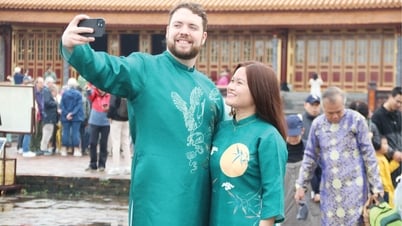







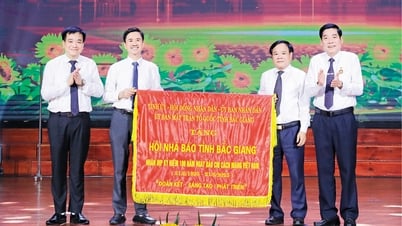




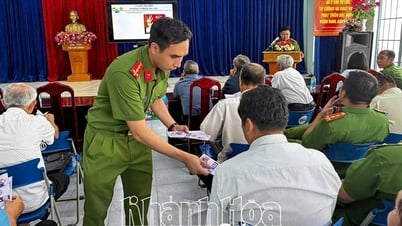
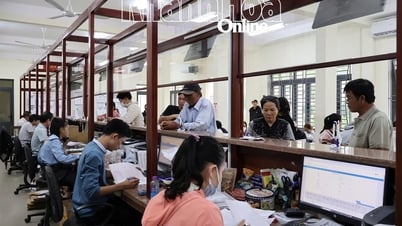

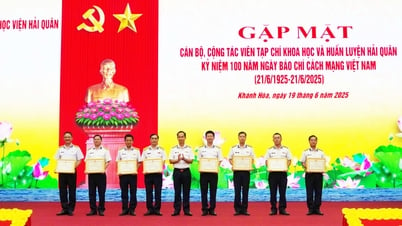
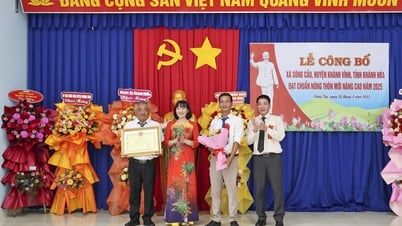




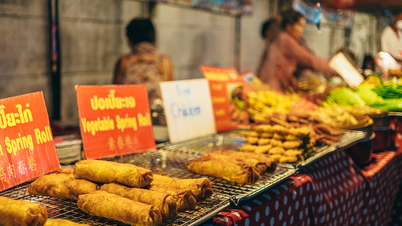


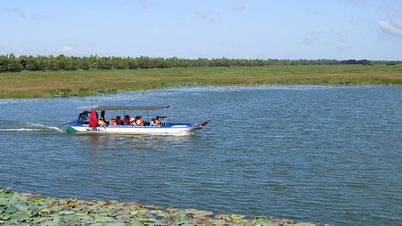

![[Maritime News] Wan Hai Lines invests $150 million to buy 48,000 containers](https://vphoto.vietnam.vn/thumb/402x226/vietnam/resource/IMAGE/2025/6/20/c945a62aff624b4bb5c25e67e9bcc1cb)
![[Photo] The 9th Congress of the Party Committee of the Office of the President, term 2025-2030](https://vphoto.vietnam.vn/thumb/1200x675/vietnam/resource/IMAGE/2025/6/20/78e7f27e8c4b4edc8859f09572409ad3)












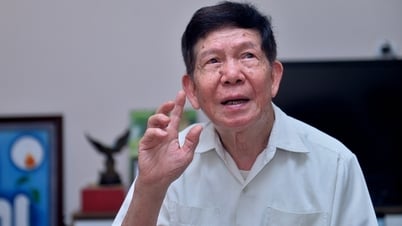













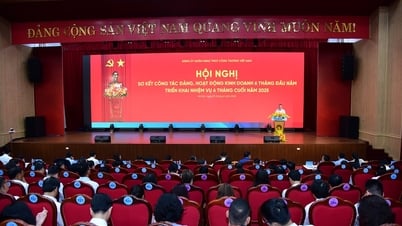





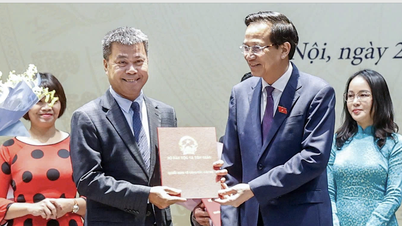
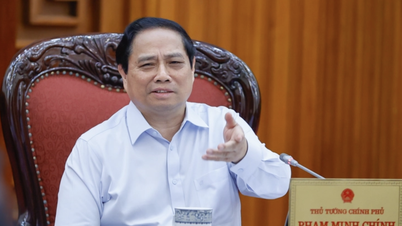
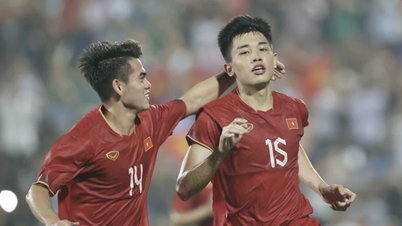

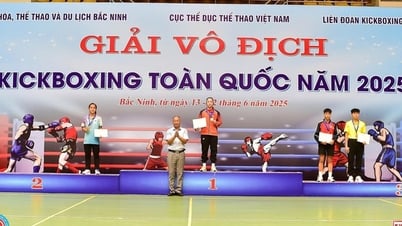

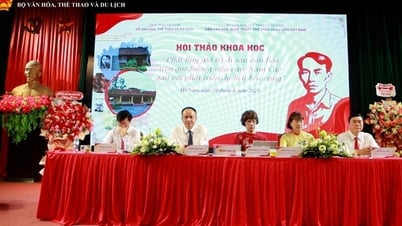
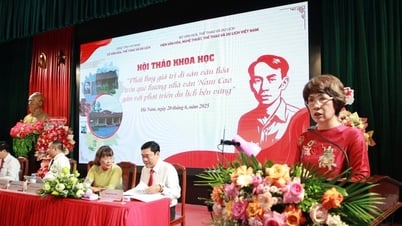

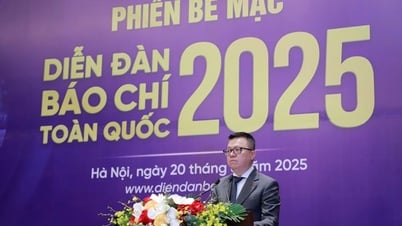
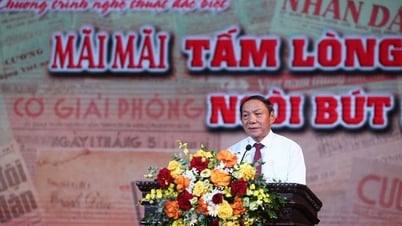



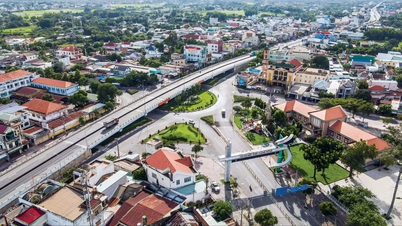
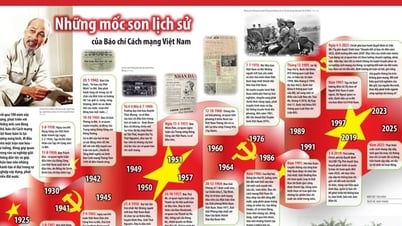

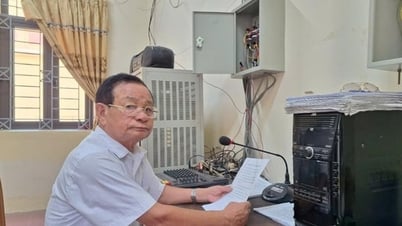












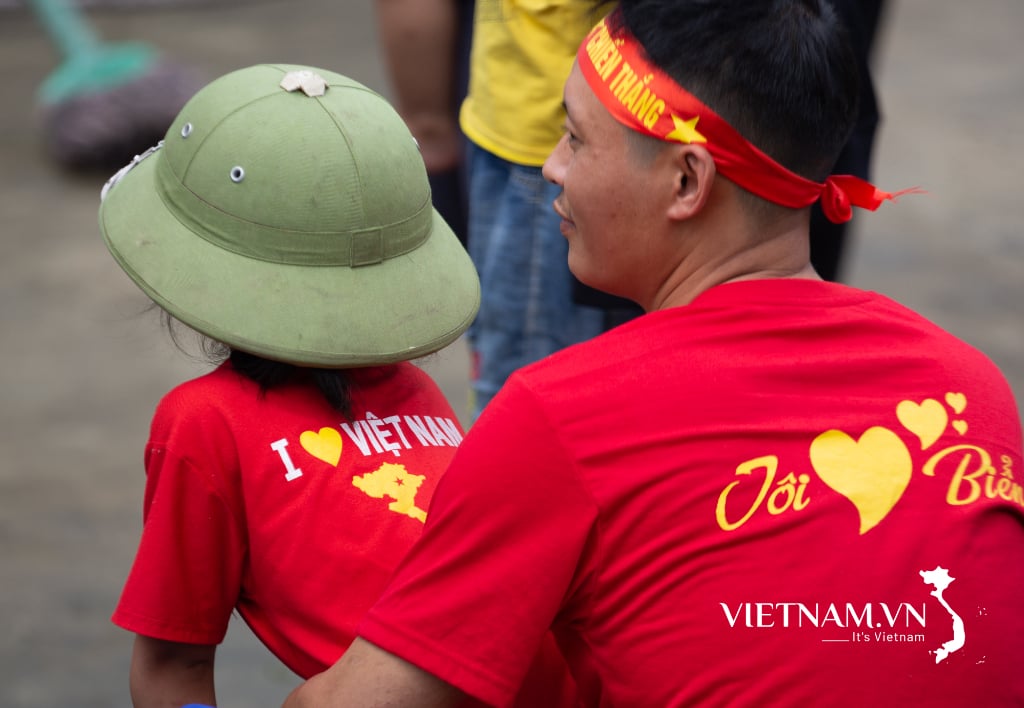
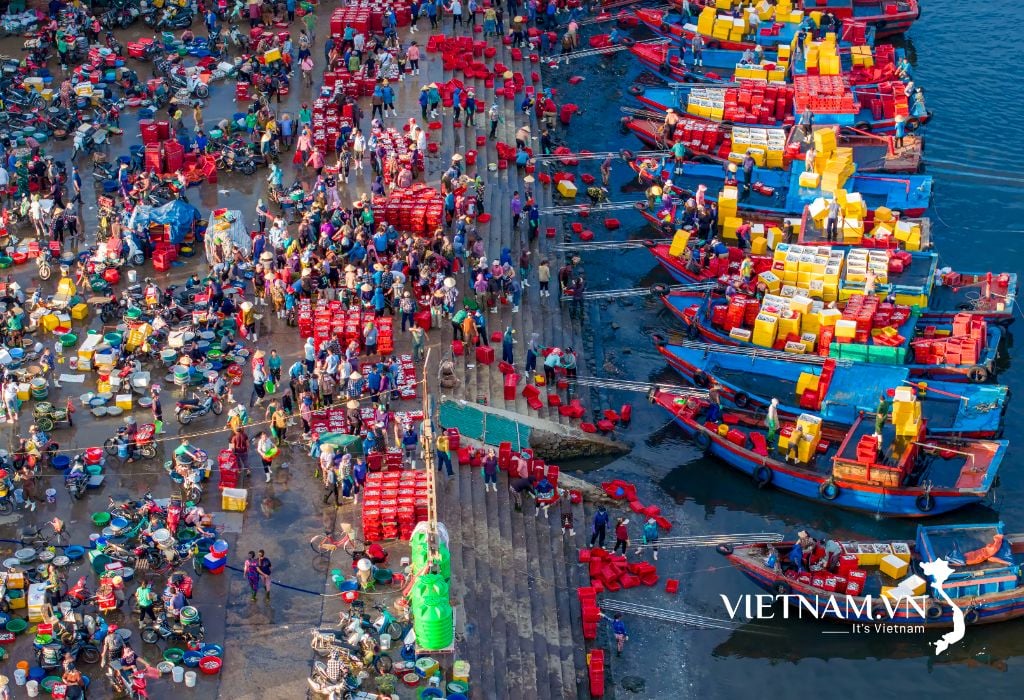
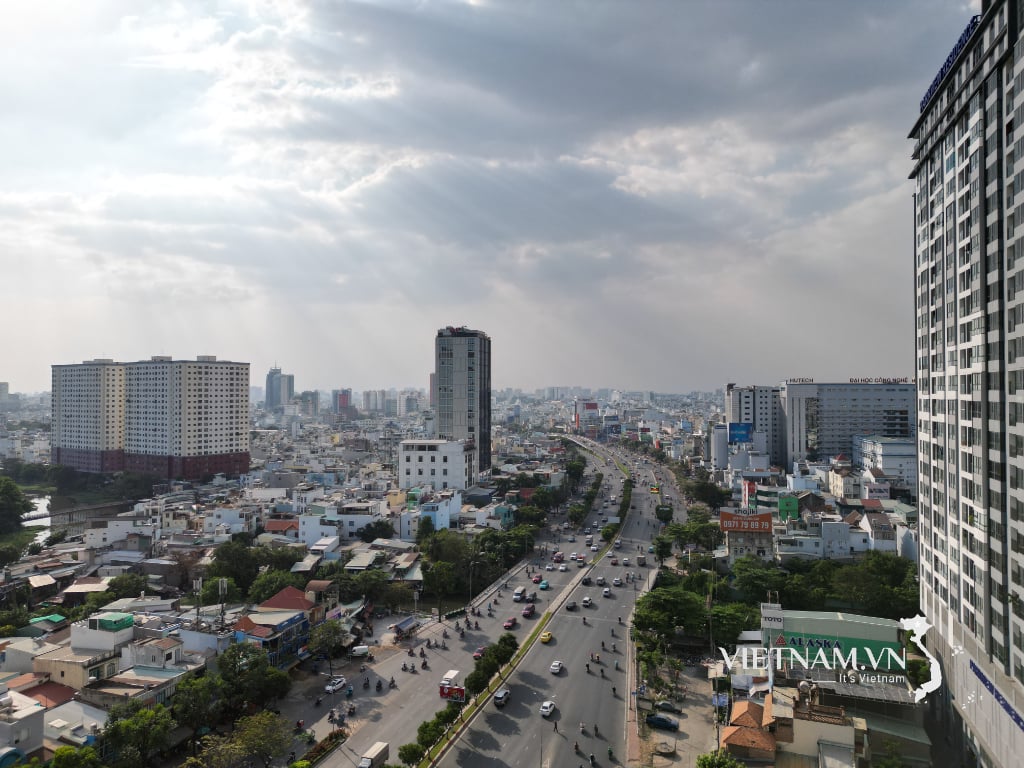
Comment (0)